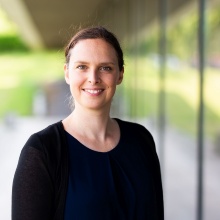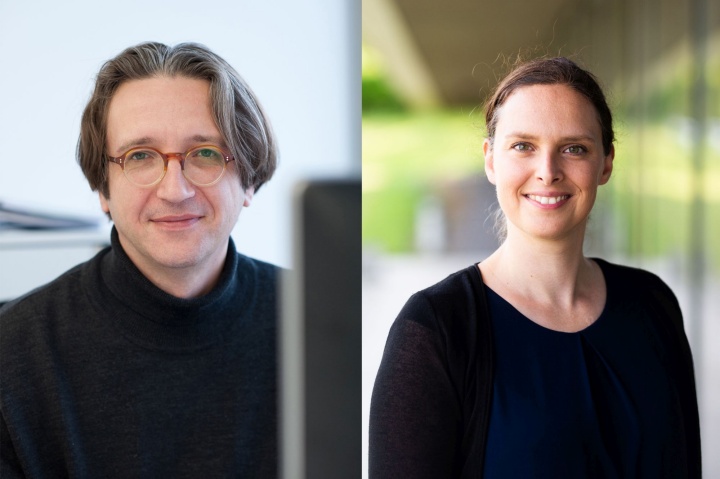The Center for Integrated Quantum Science and Technology IQST in Ulm and Stuttgart combines excellent basic research with applications in quantum computing, quantum sensor technology, and quantum communication. Prof. Stefanie Barz from the Institute for Functional Matter and Quantum Technologies (FMQ) at the University of Stuttgart and Prof. Fedor Jelezko from Ulm University will be managing the center for the next four years.
Since its foundation, the IQST has established itself internationally as one of the leading quantum centers. The interdisciplinary research platform brings together researchers from the universities in Ulm and Stuttgart as well as scientists from the Max Planck Institute for Solid State Research in Stuttgart. The scientists at the IQST are researching the fundamentals of next-generation quantum technologies and develop future-oriented applications such as quantum computers, quantum sensors, and quantum communication. In the interdisciplinary project, experts from physics, computer science, chemistry, biology, and the engineering sciences are working closely together. Collaborations with industrial partners form the basis for translating the research findings into technological applications.
Since May 2022, the center has been managed by a new board of directors: At the University of Stuttgart Prof. Stefanie Barz focuses on photonic quantum technologies and their applications in quantum communication and quantum computing. At Ulm, Prof. Fedor Jelezko is doing research on solid-state quantum systems and their applications. Both managers are looking forward to their new task and, together with the new board, want to make the center ready for the next quantum revolution.
One of the quantum center’s top priorities is interdisciplinary cooperation, which is to be further strengthened in the future. In Stuttgart, the aim is to strengthen the cooperation between physics, the engineering sciences, and computer science: “The close interaction between the various disciplines is the prerequisite for the creation of quantum technologies with quantum advantage,” says Barz. In Ulm, the connection to the life and medical sciences is to be intensified. “For example, the aim is to use quantum sensors in medical applications in order to achieve better imaging,” Jelezko explains.
The IQST is to play an important part in coordinating different research projects that are funded, for example, as part of the federal government’s strategic initiative on quantum computing. “We want to make a decisive contribution to the networking of the projects and provide a platform on which common challenges can be addressed,” Prof. Stefanie Barz points out. “To gain a decisive advantage in quantum technologies, it’s important to create an ‘ecosystem’ in which all partners are working together,” says Professor Fedor Jelezko. New collaborations with industrial partners and further connections with research institutions are to be established, for example, in the field of quantum technologies for space travel.
Finally, the IQST considers itself responsible for the education of early career researchers and would like to dovetail the study concepts of both locations more closely. In addition, it is important to further strengthen the cooperation and exchange of the IQST with national and international research institutions: “Only if we pool our expertise, we will be able to harness the enormous potential of the 2nd quantum revolution for science, business, and interested parties,” the new directors emphasize.
About the IQST:
Researchers from the IQST, which was established in 2012, are regularly among the most cited scientists and have been awarded several ERC Grants of the European Research Council. The high level of competence and expertise is also reflected in numerous highly endowed projects: For example, the IQST is involved in the Cluster4Future “QSens” of the Federal Ministry of Education and Research. The Cluster is coordinated by IQST board member Jens Anders. Also, the Baden-Württemberg competence network QTBW would not have been possible without the initiative from Stuttgart and Ulm. Apart from these new focus areas, networking with other leading scientists, for example within the Quantum Alliance (www.quantum-alliance.de), an alliance of quantum centers in Germany, is of great importance.
42 Fellows and about 30 PhDs are working at the center in cooperation with international academic partners such as the Hebrew University in Israel and the University of British Columbia in Canada, as well as with industrial partners such as Bosch and Zeiss.
Expert Contact:
Dr. Sonja Lebus-Henn, Programm Manager IQST, Phone 0731/50 22291, E-Mail



